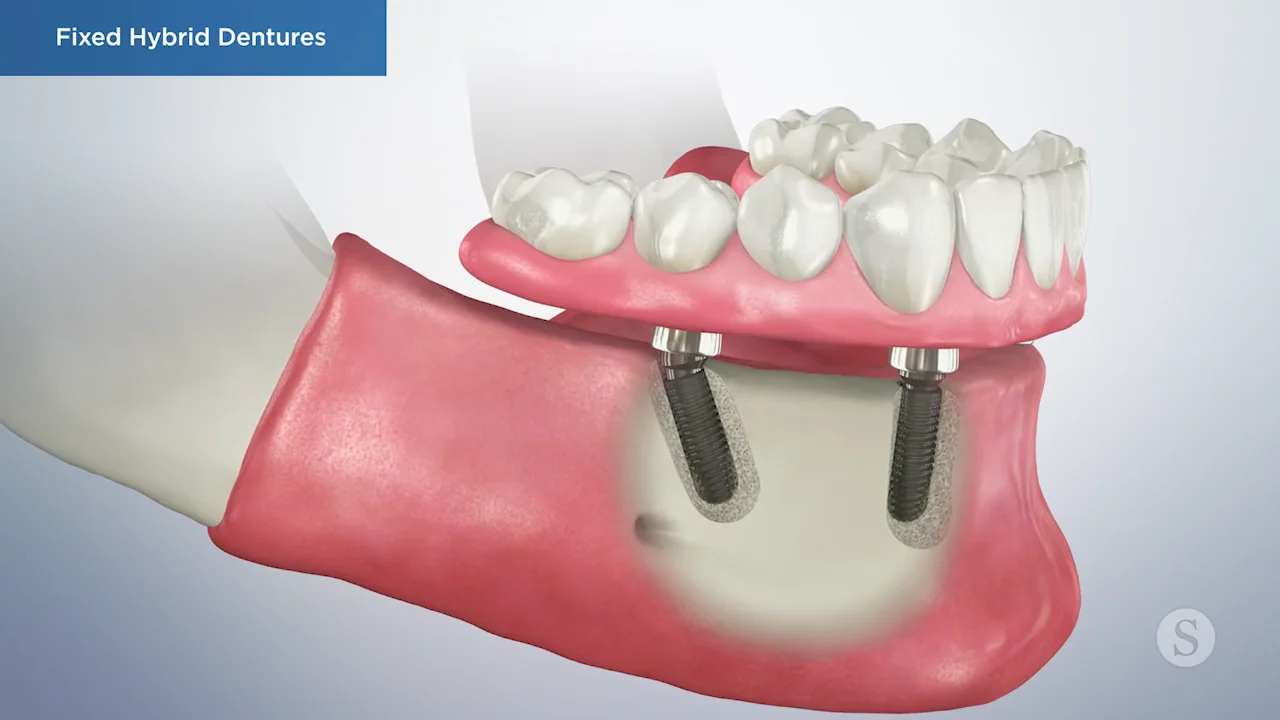What Are Dental Implant Dentures, and How Do They Work?
Dental implant dentures have revolutionized the way we approach tooth replacement, offering a durable, functional, and aesthetically pleasing solution for individuals missing multiple teeth. Unlike traditional dentures, which rest on the gums and may cause discomfort or slipping, dental implant dentures are anchored securely into the jawbone. This article delves into the intricacies of dental implant dentures, explaining what they are and how they work, providing a comprehensive understanding for those considering this advanced dental option.
Understanding Dental Implant Dentures
Dental implant dentures, often referred to as implant-supported dentures, are a type of overdenture that is supported by and attached to implants. Implants are small titanium posts surgically placed into the jawbone, serving as artificial tooth roots. These posts integrate with the bone over time through a process called osseointegration, providing a stable and strong foundation for the dentures.
Components of Dental Implant Dentures
- Implants: The titanium posts that act as roots for the replacement teeth.
- Abutments: Connectors placed on, or built into, the top of the implants to which the dentures attach.
- Dentures: The actual replacement teeth that are affixed to the abutments.

How Do Dental Implant Dentures Work?
The functionality of dental implant dentures is rooted in the concept of osseointegration. Here’s a step-by-step overview of how they work.
Initial Consultation and Planning
The process begins with a thorough consultation with a Dental Implant Dentist. During this visit, the dentist evaluates the patient’s oral health, jawbone density, and overall suitability for implants. Advanced imaging techniques, such as X-rays and CT scans, help in creating a precise treatment plan.
Implant Placement
Once the treatment plan is established, the next step is the surgical placement of the implants. Under local anesthesia or sedation, the Dental Implant Dentist makes incisions in the gums to expose the jawbone. Small holes are drilled into the bone, and the titanium implants are inserted. This procedure is typically performed in an outpatient setting, and most patients experience minimal discomfort.
Healing and Osseointegration
After the implants are placed, a healing period of several months is necessary to allow osseointegration to occur. During this time, the bone grows around the implants, firmly anchoring them in place. Temporary dentures can be worn during this period to maintain aesthetics and functionality.
Abutment Placement
Once osseointegration is complete, the next step involves placing the abutments. This minor surgical procedure involves reopening the gums to attach the abutments to the implants. The gums are then allowed to heal around the abutments, creating a secure connection point for the dentures.
Denture Fabrication and Fitting
The final stage is the fabrication and fitting of the dentures. Impressions of the mouth are taken to create custom dentures that fit precisely over the abutments. These dentures can be either fixed (permanent) or removable, depending on the patient’s preference and the dentist’s recommendation.
Maintenance and Care
Caring for dental implant dentures is similar to caring for natural teeth. Regular brushing, flossing, and dental check-ups are essential to maintain oral health and ensure the longevity of the implants and dentures. A Dental Implant Dentist will provide detailed instructions on proper care and maintenance.
Benefits of Dental Implant Dentures
Dental implant dentures offer numerous advantages over traditional dentures and other tooth replacement options:
- Stability and Comfort: Implant-supported dentures are securely anchored, eliminating the slipping and discomfort often associated with traditional dentures.
- Improved Chewing and Speaking: The stability of dental implant dentures allows for more efficient chewing and clearer speech.
- Bone Preservation: Implants stimulate the jawbone, preventing the bone loss that typically occurs with missing teeth.
- Aesthetics: Dental implant dentures provide a natural-looking smile, boosting confidence and self-esteem.
- Longevity: With proper care, dental implants can last a lifetime, making them a cost-effective long-term solution.
Suitability and Considerations
While dental implant dentures are an excellent solution for many, they may not be suitable for everyone. Certain factors need to be considered:
- Jawbone Density: Sufficient bone density is crucial for successful implant placement. In cases of significant bone loss, bone grafting may be necessary.
- Overall Health: Patients should be in good general health, with no conditions that could impair healing, such as uncontrolled diabetes or autoimmune disorders.
- Smoking: Smoking can negatively impact the success of dental implants due to its effects on healing and bone integration.
Cost and Insurance
The cost of dental implant dentures can vary widely based on factors such as the number of implants needed, the type of dentures chosen, and geographic location. While they are generally more expensive upfront compared to traditional dentures, their longevity and the quality of life improvements they offer make them a worthwhile investment. Many dental insurance plans provide partial coverage for implant-supported dentures, and financing options are often available.
Finding a Dental Implant Dentist
Choosing a qualified and experienced Dental Implant Dentist is essential for the success of the procedure. Patients should seek out a dentist with specialized training in implant dentistry and a proven track record of successful implant placements. Reading reviews, asking for before-and-after photos, and seeking recommendations can help in making an informed decision.
Conclusion
Dental implant dentures represent a significant advancement in dental technology, offering a stable, functional, and aesthetically pleasing solution for those missing multiple teeth. By understanding what dental implant dentures are and how they work, individuals can make informed decisions about their oral health and explore the possibility of regaining a natural-looking and confident smile. Consulting with a skilled Dental Implant Dentist is the first step towards achieving these benefits and improving overall quality of life.
Comments
Post a Comment